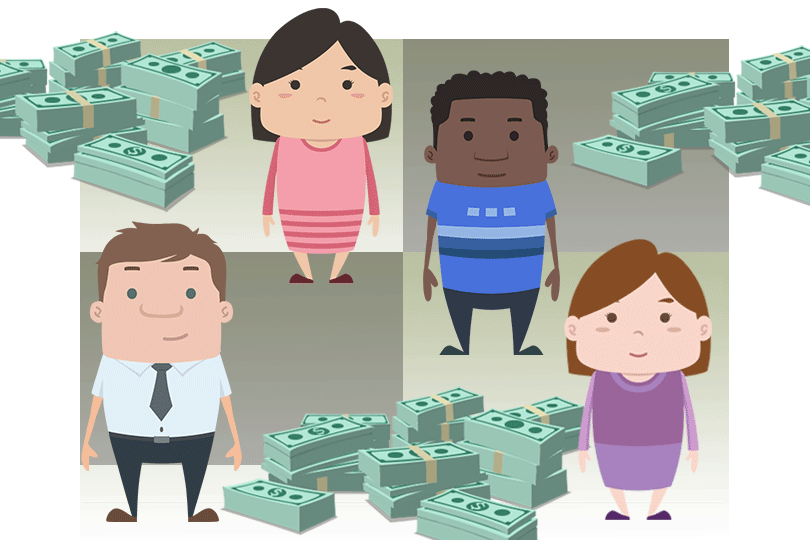When is the Right Time for an FHA Cash-Out Refinance?
December 5, 2024
One key rule is the "seasoning requirement." Think of it like a waiting period: you generally need to own your home for at least one year before you can apply for an FHA cash-out refinance. This allows you to demonstrate a stable ownership history and build some equity.
Of course, there are exceptions to every rule. Life throws curveballs, and situations like divorce or a sudden jump in your property value might shorten the waiting period. These are usually handled case-by-case, so be prepared to provide documentation to support your situation.
Connecting with an FHA-approved lender is always the best way to get the most accurate information. They can explain your situation's specific requirements and help you gather the necessary paperwork.
Building Equity: Your Home's Growing Value
Beyond meeting the FHA's requirements, it's smart to give your equity time to grow. Equity is like your ownership stake in your home—the bigger it is, the more financial freedom you have. It's calculated by taking your home's current market value and subtracting what you still owe on your mortgage.
Several factors contribute to your home equity increasing. For example, every time you make a mortgage payment, a portion chips away at your loan balance, increasing your ownership. Secondly, property values increase over time, especially in desirable neighborhoods.
This natural appreciation boosts your equity without you having to lift a finger.
Finally, strategic home improvements that add value to your property also play a role in growing your equity.
By waiting and allowing your equity to increase, you'll have access to more funds when you do a cash-out refinance. This gives you more financial flexibility and puts you in a stronger position to achieve your goals.
Why Pumping the Brakes Can Pay Off
While accessing quick cash might sound appealing, rushing into an FHA cash-out refinance soon after buying your home can have some downsides.
If you haven't built up enough equity, you might not be able to access as much cash as you need. This could make it harder to accomplish your goals, whether it's tackling those credit card balances or finally remodeling that outdated bathroom.
Remember those closing costs that come with buying a home? Well, they apply to refinancing too. Things like appraisal fees, loan origination fees, and title insurance can add up. Refinancing too quickly means paying these costs multiple times, which could affect your potential gains.
Depending on the market and your credit score, the interest rate on your new loan might be higher than your original mortgage rate. Refinancing too soon could mean paying more in interest over the life of your loan.
Finally, if you haven't had enough time to settle your finances after buying your home, taking on more debt through a cash-out refinance could strain your budget, especially if unexpected expenses come up.
By waiting and building equity, you can minimize these risks and set yourself up for a more successful refinance down the road.

FHA Loan Articles
March 11, 2025Adding a co-borrower to your FHA is a way to offset fears that you won't qualify for the mortgage on your own. An FHA loan co-borrower with a more substantial financial profile may offset the primary borrower's weaknesses, demonstrating a reduced risk to the lender. But for an FHA loan, don't assume that one borrower with good credit scores can offset one with non-qualifying scores. We ask 20 questions about co-borrowing to help you better plan for your FHA loan.
March 10, 2025Even if you aren’t considering your home loan options right this second, it’s smart to know your options if you decide to pursue a new home later. To that end, using a mortgage calculator is a smart choice for setting some basic budgeting parameters as you plan your path toward home ownership. A mortgage calculator helps you plan for future financial scenarios, such as buying new or refinancing a current home.
February 27, 2025 Buying your first home can feel overwhelming, especially when you start hearing terms like "subprime mortgages" and "FHA loans." Understanding these options is crucial for making the right decision. Subprime mortgages are designed for borrowers with less-than-perfect credit histories. This might include past issues like late payments, loan defaults, or even bankruptcy...
February 26, 2025Buying your first home can be exciting, but the mortgage process often throws a curveball of unfamiliar terms. Here are answers to common questions first-time homebuyers have about mortgage jargon and terms.
February 18, 2025Mortgages typically require mortgage insurance and homeowners insurance. They are both key parts of your home loan but they serve very different functions. Do you know the differences between the two? Find out how ready you are to begin the process of buying your new house.







